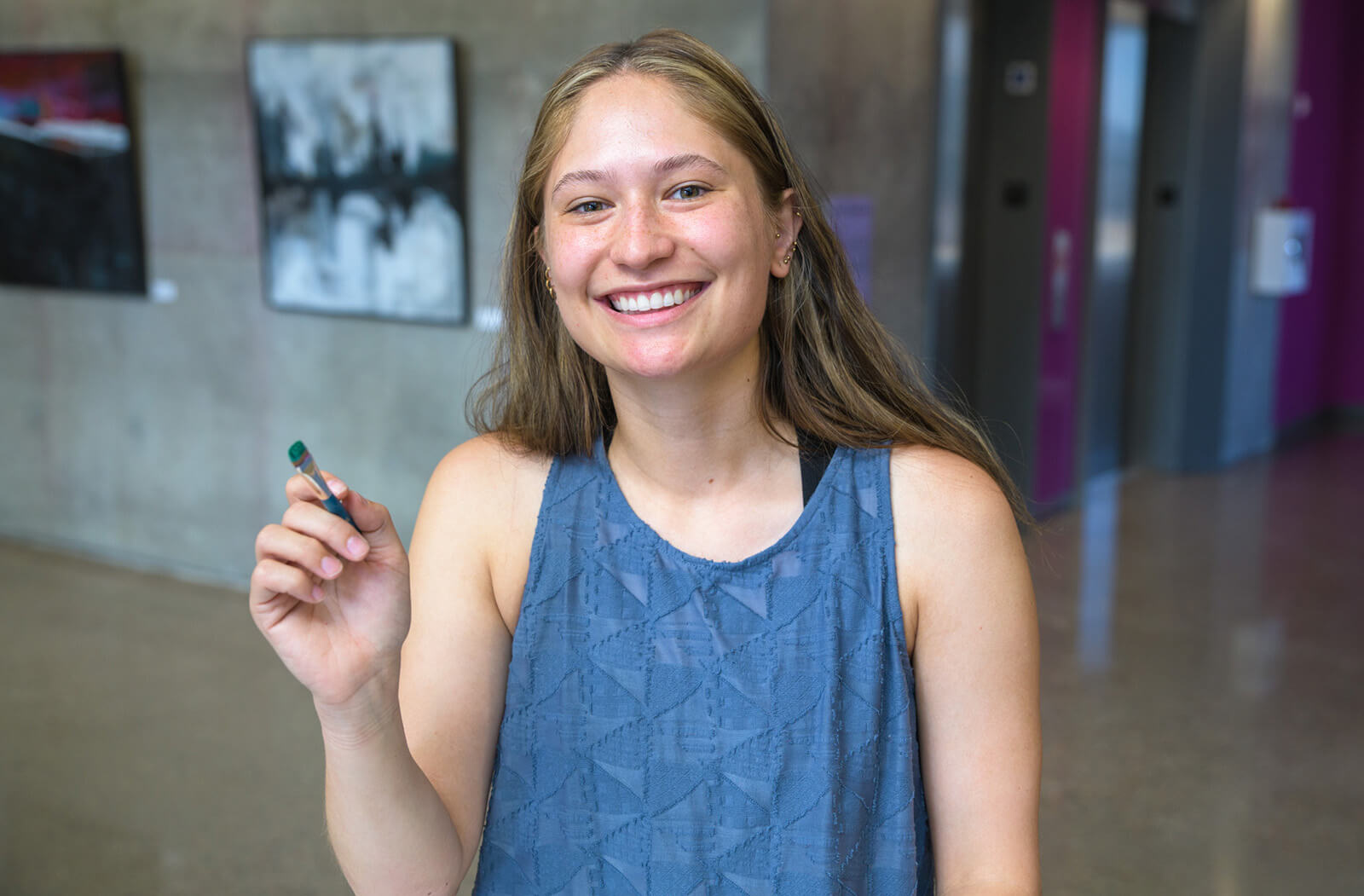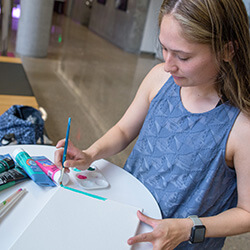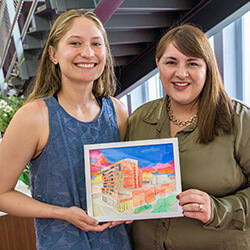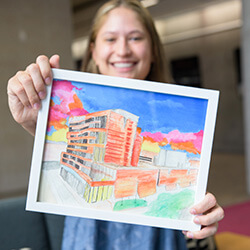
Persistence Pays Off for Pathway Scholars Student


Growing up in a big family also sparked her interest in art and medicine. Nguyen watched her older sister develop her art skills, and it inspired her to take interest. “She has always been a role model for me (much to her annoyance in our younger years), and I eagerly followed in her footsteps,” she said.
When a loved one began to struggle with health issues, Nguyen witnessed the therapeutic nature of art, leading her to better understand its role in rehabilitation. “I gained a deep appreciation for art from seeing the healing and wholeness it brought, and it expanded my view of health and integrative care.”
Since then, art and medicine have become lifelong pursuits for Nguyen. With medical school as her goal, Nguyen completed her master’s in physiological sciences; worked as a scribe for an Emergency Department; volunteered for a telemetry unit; served as a personal caregiver; and, most recently, was a medical assistant for a dermatology clinic.
Despite her vast experience, the last step of that goal — being accepted to the University of Arizona College of Medicine – Phoenix as part of the Pathway Scholars Program (PSP) — proved to be the most difficult.

She credits the College of Medicine – Phoenix’s welcoming environment for her determination to keep working toward acceptance.
“The college prides itself on its community and culture, and it is palpable. The support I received as an applicant has been unmatched, and it's a testament to the support they give their students,” she explained.
That support is what led her to utilize her interest in art to show her appreciation for those who’d helped her through the admissions process in 2020. In lieu of a ‘Thank you’ note, she sent them a painting of the Biomedical Sciences Partnership Building (BSPB) as a gift in recognition of all they did for her — even though she wasn’t accepted at that time.
“When I applied for the program in 2020, the interviews were conducted online, but I really got a feel for the program and community and started to visualize myself as part of it,” she said. “I thought it would be fun to create something meaningful by combining aspects of my past, present and what I hoped to be my future.”
In that moment, her present wasn’t on campus, but it was a across from it. Waiting anxiously to apply again, she found a job working near the college and passed by the BSPB daily on her commute; it served as a reminder of where she ultimately wanted to be.

The PSP is designed for students who have experienced unique or greater than average challenges in preparing to become competitive medical school applicants. For the next year, Nguyen — along with her fellow 2022 cohort of PSP students — will work toward a master of medical studies (MMS) degree. Should she successfully complete the program, she will then matriculate into the college’s medical school Class of 2027.
For future students who experience similar tribulations, Nguyen had these words: “Some of the best advice I have gotten about re-applying is: You know you are going to be a great doctor. It's not a matter of ‘if’ it's a matter of ‘when.’"
About the College
Founded in 2007, the University of Arizona College of Medicine – Phoenix inspires and trains exemplary physicians, scientists and leaders to advance its core missions in education, research, clinical care and service to communities across Arizona. The college’s strength lies in our collaborations and partnerships with clinical affiliates, community organizations and industry sponsors. With our primary affiliate, Banner Health, we are recognized as the premier academic medical center in Phoenix. As an anchor institution of the Phoenix Bioscience Core, the college is home to signature research programs in neurosciences, cardiopulmonary diseases, immunology, informatics and metabolism. These focus areas uniquely position us to drive biomedical research and bolster economic development in the region.
As an urban institution with strong roots in rural and tribal health, the college has graduated more than 1,000 physicians and matriculates 130 students each year. Greater than 60% of matriculating students are from Arizona and many continue training at our GME sponsored residency programs, ultimately pursuing local academic and community-based opportunities. While our traditional four-year program continues to thrive, we will launch our recently approved accelerated three-year medical student curriculum with exclusive focus on primary care. This program is designed to further enhance workforce retention needs across Arizona.
The college has embarked on our strategic plan for 2025 to 2030. Learn more.